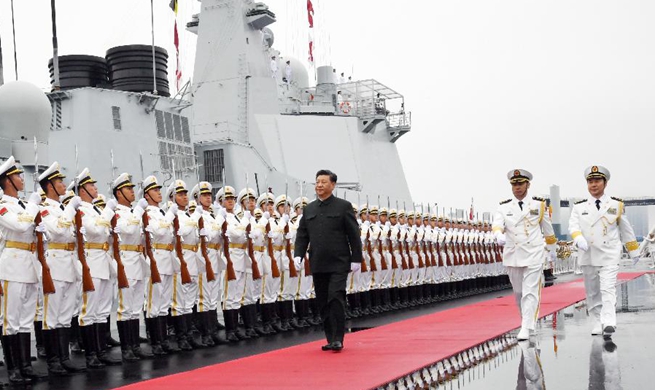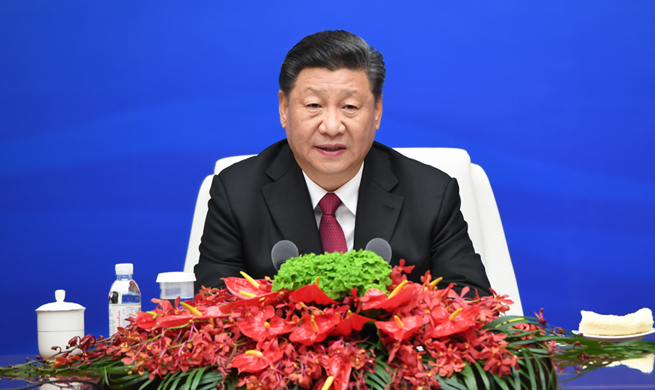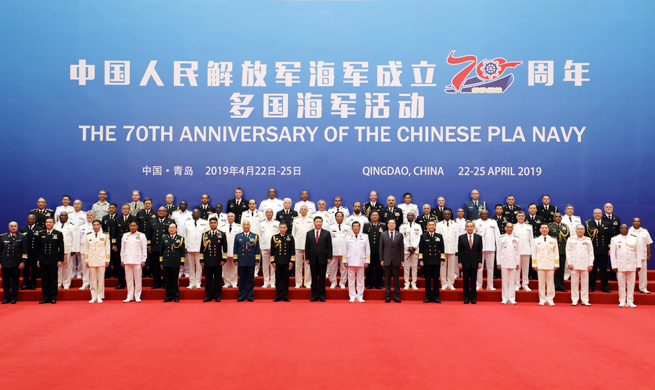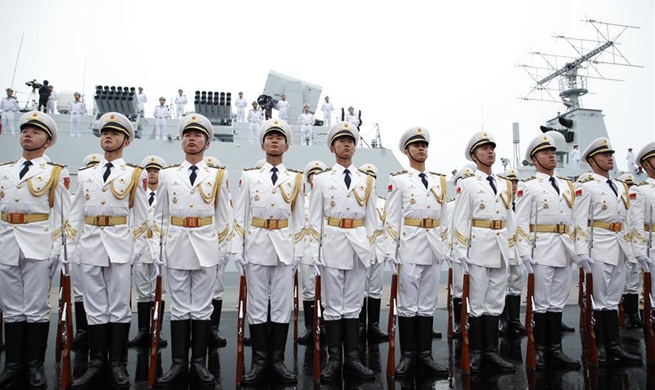by Mao Pengfei, Nguon Sovan
PHNOM PENH, April 23 (Xinhua) -- The China-proposed Belt and Road Initiative (BRI) is a potential accelerator and an effective vehicle to achieve the United Nations' Sustainable Development Goals (SDGs), a Cambodian academic has said.
Kin Phea, director-general of the International Relations Institute of the Royal Academy of Cambodia, said as global economy is undergoing profound changes and facing many challenges, especially under the impact of trade protectionism and anti-globalization trends, the BRI has provided very important opportunities and platform for countries to deepen their cooperation.
"The BRI adopted the principle of open regionalism that welcomes the participation of countries around the world," he told Xinhua in an interview ahead of the second Belt and Road Forum for International Cooperation in Beijing.
He said partners can take part in the cooperation at any level and in whatever area that is best suited for their needs and priorities, domestic conditions and readiness for international cooperation.
"BRI is a powerful shaper of a new global order and a new global force of peace, stability, prosperity, and harmony," Phea said. "In short, BRI is a global non-discriminatory and inclusive platform of cooperation regardless of region, politics, level and stage of development, culture and religion."
In 2015, the UN General Assembly adopted the 2030 Agenda for Sustainable Development that includes 17 SDGs, he said, adding that building on the principle of "leaving no one behind," the new agenda emphasizes a holistic approach to achieve sustainable development for all.
"BRI follows an approach of extensive consultation, joint development and shared benefits, and advocates openness and inclusiveness, while the 2030 Agenda underscores international cooperation for development," the academic said. "Both are aimed at developing economies and providing better lives for the people."
BRI, with policy coordination, infrastructure connectivity, unimpeded trade, financial integration, and closer people-to-people ties as its main goals, "is a potential accelerator and an effective vehicle to achieve the 2030 Agenda and help in advancing several SDGs in participating countries," he said.
To make BRI and the SDGs help each other to move forward, it is necessary for countries participating in the BRI cooperation to identify their national needs and priorities and to align the BRI with national and sectoral strategies and plans, he said.
He added that countries participating in the BRI cooperation should strengthen their institutional capacity, leadership, and human capital to grab opportunities to achieve their SDGs and to implement BRI projects successfully.
"Both China and BRI participating countries should strengthen and develop all necessary legal frameworks and policies and strictly re-enforce them in implementing BRI projects," Phea said.












